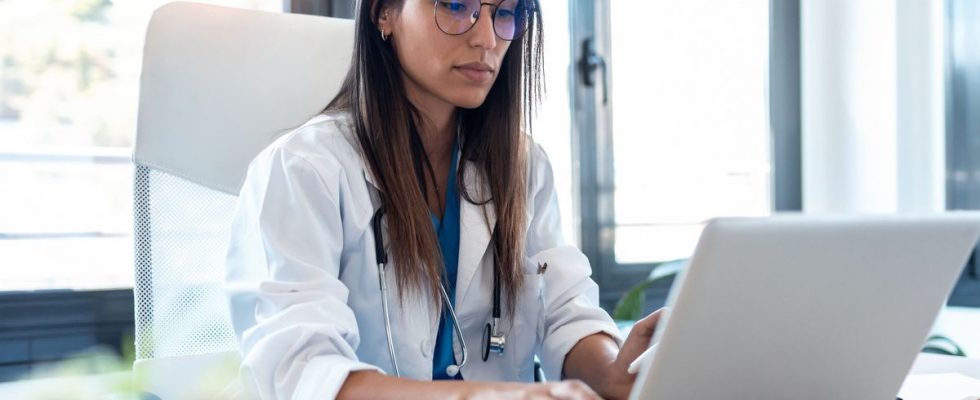Published on
Updated
Reading 2 min.
How to make diagnoses via teleconsultation? Two recent works written by tele-doctors attempt to answer a question that still leaves many doctors skeptical.
Telesemiology: a new, untheorized, untaught exercise
Teleconsultation is “a new exercise, not theorized, not taught, without practical studies“, and the medical community “is divided” on the subject, explains Doctor Ségolène Puechlong, coordinator of the “Telesemiology Manual” just published by the teleconsultation platform Livi.
“In the manual, we study this new practice in a descriptive and meticulous way, so that it can be tested” and discussion between doctors, she adds.
A work like the “Telesemiology Manual” is “only a first stone, it’s obvious,” believes Dr. Puechlong.
“It is likely that part will be modified, completed, or even removed” as the studies and experiments continue, she acknowledges.
Doctor Marion Lagneau, co-author with Doctor Anne-Sylvie Poisson-Salomon of “Teleconsultation: from interrogation to clinical decision” (Vuibert) also notes the reluctance of many doctors.
A possible diagnosis by questioning 70-80% of cases?
Traumatized by the Covid episode, which forced them to consult remotely without being prepared, many practitioners continue to consider it essential “to have the patient in front of you”, she explains.
However, the two doctor-authors are convinced that it is often possible to carry out consultations remotely that are as medically sound as those carried out in person.
“I have done many years of telemedicine in gastroenterology, where doctors keep saying that the clinical examination is essential, and I do not agree: we can perfectly do very good gastroenterology without examining directly to the patient“, says Dr. Lagneau.
Proponents of teleconsultation point out that in medicine, questioning the patient – which can be done remotely without problem – plays a fundamental role in diagnosis.
“According to scientific studies, the interrogation makes it possible to establish the diagnosis in 70 to 80% of cases.“, estimates Doctor Lagneau.
Self-palpation
Doctor Puechlong’s “telesemiology manual” goes a little further than a detailed interrogation guide, focusing on the video examination of bodily symptoms, and the gestures that the patient can perform himself under the control away from your doctor, such as self-examination.
“Some say you can’t do clinical exams without a physical exam, but our manual tries to demonstrate the opposite” indicates Doctor Puechlong.
However, neither doctor claims that teleconsultation can meet all needs.
“100% telemedicine makes no sense“, estimates Doctor Puechlong, who prefers to talk about the construction of “digi-physical” pathways for the patient, combining face-to-face medicine and telemedicine.
General practitioner and medical school teacher, Dr. Stéphanie Sidorkiewicz takes a cautious look at teleconsultation, which she herself practices occasionally… but only with her regular patients.
“It is true that the interview“with the patient”represents a major part of the diagnostic process“, she explains. “But when faced with a new symptom, it is still very common to carry out a clinical examination. And it is very difficult to know in advance whether we will be able to do without it or not.“, she observes.
Moreover, “there are lots of questions to check“scientifically,” she believes.
In the absence of a clinical examination, will the doctor not have “more inclined to prescribe more additional examinations – x-rays, blood tests, etc. – to protect yourself?“, she asks.
In 2021, a publication from the National Academy of Medicine reported that according to several studies, tele-doctors had shown a greater propensity to prescribe antibiotics than their colleagues seeing their patients directly.
